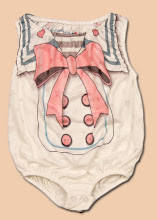

 Baby Colic!
Baby Colic!Mummy and daddy's activity at night..
Entertain the little one.. :)
Did you notice how big Aidan's tummy is in the picture? This is Aidan if he fails to go 'toilet' more than 2 days, sometimes 1 day also like this maaaa.. But Aidan rarely cries because of this.. Windy? Gassy? Yup, he is up until now.. Dr Cheng did gave him Colic Drop to ease him and to help with the gassy tummy.. I do believe that my baby has got something to do with this colic thingy, because of the symptoms being shown, but not the crying part.. Because Aidan's crying pattern is just as normal..
So, if Aidan suddenly wakes up, crying, mummy will first look at his diaper and his tummy.. If it is soft, then it's okay.. If vice versa, mummy will put some colic drop in his milk to soothe him.. It helps! And lately Aidan needs me to help him raise both of his legs, and he will go 'toilet' right infront of me.. Mummy for sure would cheer for him.. Go baby! Kikiki..
But mummy pity Adam, Aidan's uncle.. Mummy really believe that he has colic.. He cries a lot and pity his mother because mummy can see that she is helpless.. So tomorrow mummy decided to bring him Aidan's colic drop and maybe it will help Adam to feel better.. :)

So, this entry is inspired by Mr Adam, just bits on Colic and how to handle it.. At least, ways to try to calm the babies.. :) Happy Reading!
Baby colic (also known as infant colic, three-month colic, infantile colic and colic) is a condition in which an otherwise healthy baby cries or screams frequently and for extended periods without any discernible reason.
There is no commonly accepted explanation for colic. While no longer universally accepted, traditionally colic was ascribed to abdominal pain resulting from trapped gas in the digestive tract. This theory is not yet discredited, and some recent scientific evidence provides support. There is evidence that the causes are related to variations in the gut flu.
Each baby will show different symptoms of having colic. Some may show a number of symptoms while some will only show one. Below are some of the most common symptoms associated with colic.
-
Loud and continuous crying that can last from one to three hours at a time, with these crying episodes occurring about three or four days a week
-
Although the crying can happen at any time, most colicky babies cry more in the late afternoon or evening
-
Baby’s face gets red
-
Legs are pulled up to the stomach and then may be fully stretched
-
Feet may be cold
-
Hands may be clenched
-
Some babies refuse to eat or become fussy soon after eating
-
Difficulty falling and staying asleep
-
Baby may lift their head or legs and pass gas
-
Baby may seem generally uncomfortable and appear to be in pain
|
There are a lot of parents you probably know that have been through the experience of having a baby with colic. Talk with other parents and friends and get their suggestions on what methods they used to calm their baby. There are a lot of different things that people have tried that are not listed above. Keep in mind that not every baby will react to these methods the same. Sometimes it may help, while other times it may seem to make the baby more uncomfortable. Try one at a time and hopefully you will find one that comforts your baby while also giving your ears a rest from the crying..
* The ones with colours check points are the ones Aidan has now.. Nothing serious though.. Kikiki.. :)


























































































